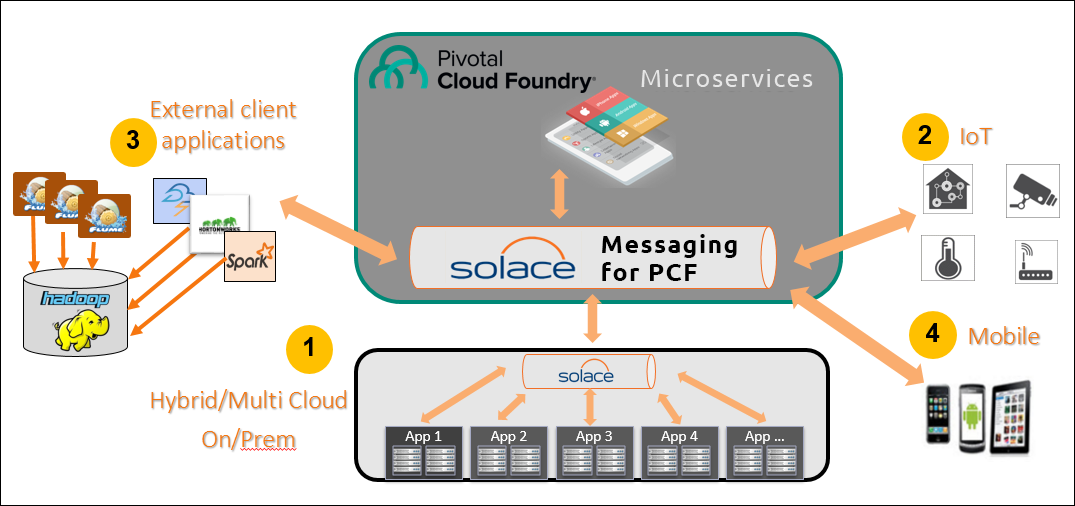Note: In September 2019, Pivotal changed the name of Pivotal Cloud Foundry (PCF) to Pivotal Platform.
Solace recently released a new version of the Solace Messaging Tile for Pivotal Cloud Foundry (PCF). The Enterprise Edition of the tile supports fault tolerance and high availability, and it includes some game-changing features like TCP Routes and support for AMQP 1.0 that I wanted to share my excitement about.
TCP Routes: Integrating the Real World with PCF
PCF, and more generally all platforms as a service, have changed the way we view the development, deployment and scalability of applications. The ability to deploy applications on-prem or in any cloud provides the flexibility and freedom to meet today’s business needs, while on-demand implementation saves organizations money with “right size” scaling. PCF is not an island, as applications running in the cloud must be fed data to provide business value. What if sensor data could be streamed into PCF? What if you could connect your legacy systems to new microservices running in PCF?
Solace has fully automated the ability to move data into and out of PCF using the PCF TCP Router. An operator simply specifies which protocols need to be accessible externally though the PCF Ops Manager and Solace makes it happen! External systems can use their protocol of choice, including AMQP, JMS, MQTT, REST or WebSocket, to exchange data with PCF applications and microservices. This feature also enables easy federation with other Solace VMRs (2018 update: Solace VMRs are now referred to as Solace PubSub+), Solace Hardware Appliances to support hybrid cloud deployments and even other PCF deployments.
AMQP 1.0: A Standard Wireline Protocol for the Modern World

Winning Combination
Leveraging both AMQP and TCP Routes opens up B2B use cases that are simply not possible with HTTP and REST. External organizations, partners and customers can now consume real-time streams of data generated by applications and microservices deployed into PCF while using the AMQP 1.0 standard wireline protocol. This lets consumers of data choose whatever programming language and open source API best meets their needs.
Go ahead and download our new Solace Messaging Tile for Pivotal Cloud Foundry to explore these new features.
Explore other posts from category: Products & Technology

 Jonathan Schabowsky
Jonathan Schabowsky

